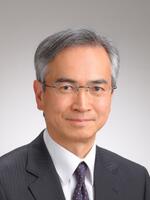Research Experience
-
1997.04-Now
Waseda University Professor
-
2018.11-2020.09
Waseda University Center for Research Strategy Director
-
2004.04-2009.03
NHK Science & Technology Research Laboratories Visiting Researcher
-
2000.04-2002.03
ATR Spoken Language Translation Research Laboratories Visiting Researcher
-
1994.07-1995.08
MIT Laboratory for Computer Science Visiting Researcher
-
2020.04-2020.09
Waseda University Reserch Council Chair
-
2014.11-2016.09
Waseda University Institue for Advanced Study Depty Director
-
2010.09-2016.09
Waseda University Research Institute for Science and Engineering Deputy Director
-
2007.04-2014.03
Waseda University Dept. Computer Science and Engineering (due to change of department name)
-
2004.04-2007.03
Waseda University Dept. Computer Science Professor
-
2003.04-2004.03
Waseda University Dept. Computer Science (due to depatment reorganization)
-
1997.04-2003.03
Waseda University Dept. Electrical, Electronics and Computer Engineering Professor
-
1996.04-1997.03
Waseda University Dept. Electrical, Electronics and Computer Engineering (due to change of dapartment name) Assosiate Professor
-
1991.04-1996.03
Waseda University Department of Electrical Engineering, School of Science and Engineering
-
1987.04-1991.03
Hosei University
-
1990.07-1990.09
Auditory and Visual Perception Research Laboratories Invited Researcher
-
1985.04-1987.03
Hosei University Dept. Electrical Engineering Lecturer


Click to view the Scopus page. The data was downloaded from Scopus API in February 16, 2026, via http://api.elsevier.com and http://www.scopus.com .